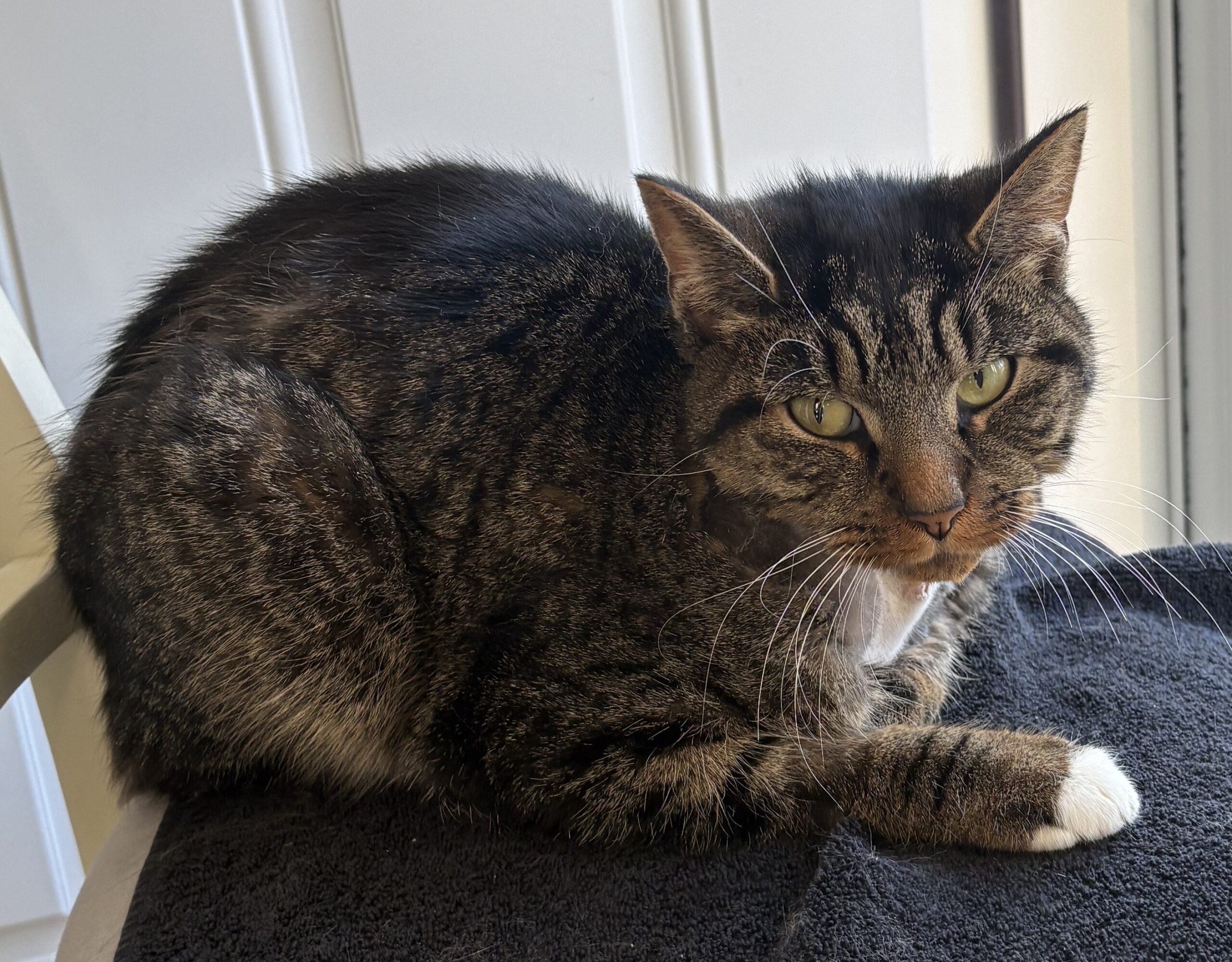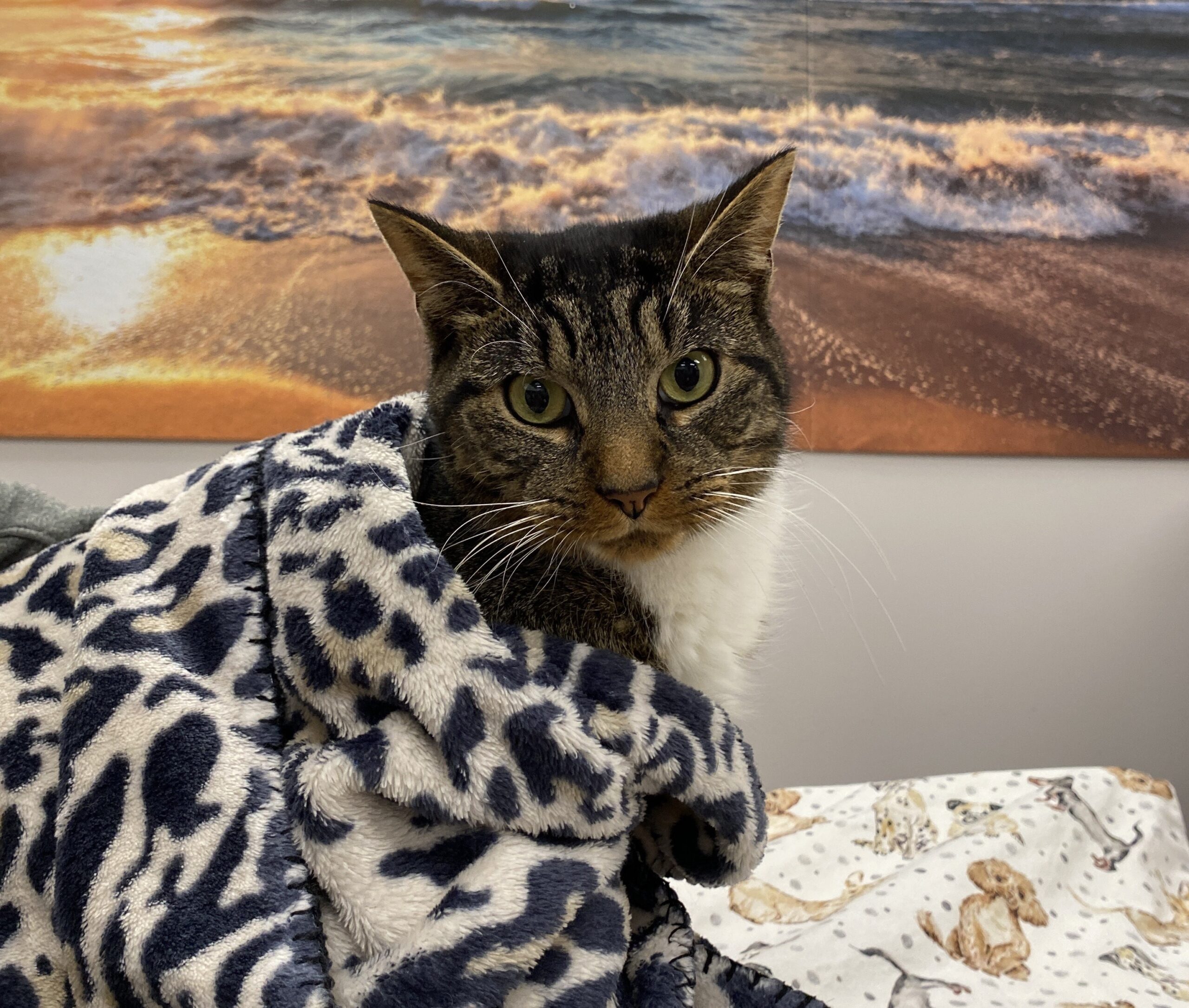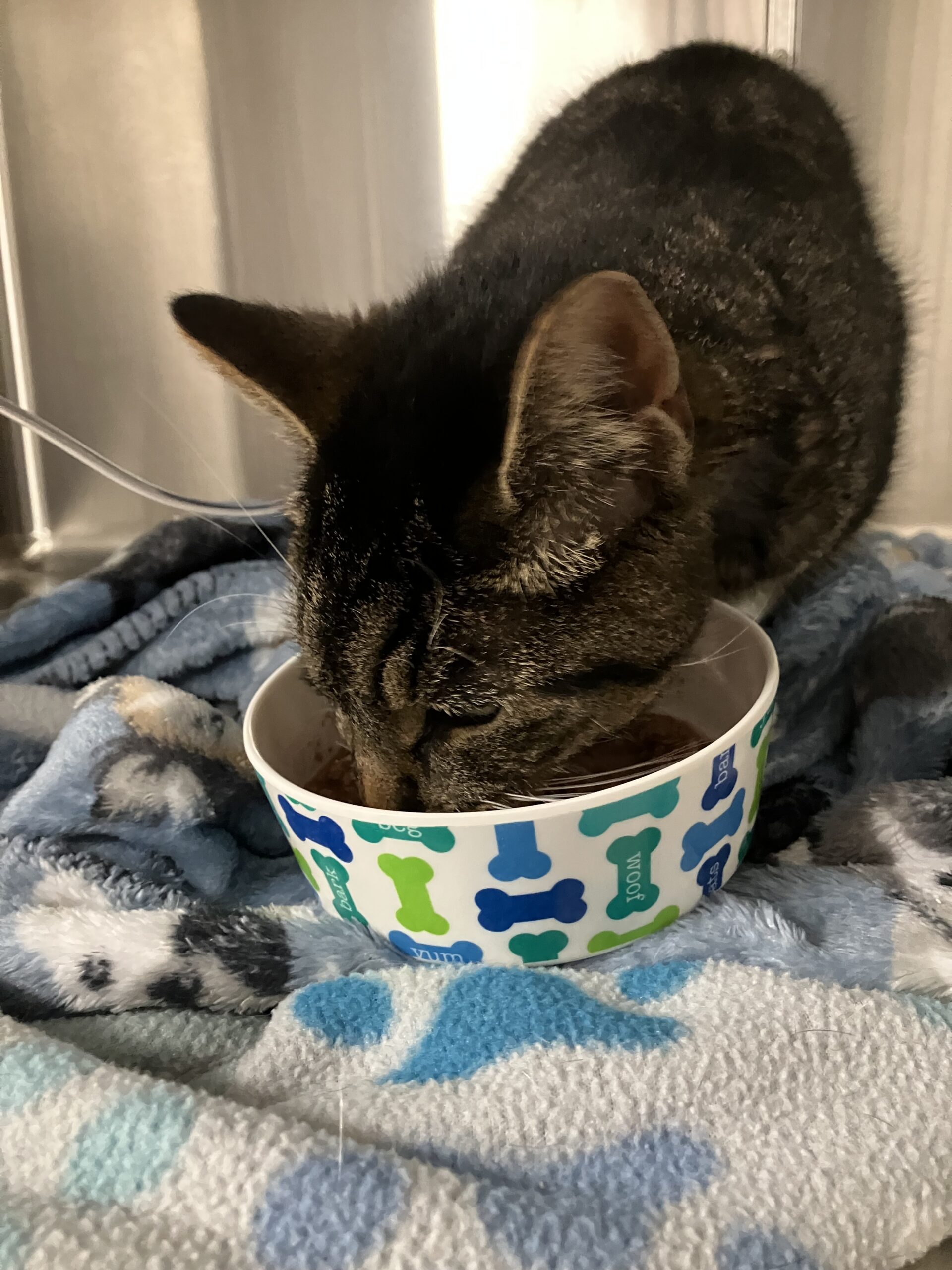
“The situation was horrible. Howie was always sneezing and regurgitating food. He would hide constantly. We were so distraught, as we were told to either get him a feeding tube, do nothing and let him suffer, or put him down.”
Our most memorable patient in 2024 at LRVSS is a recent one. But it’s such an amazing story, that this is the one we chose to highlight. In fact, this diagnosis and surgery may be a first…
Howie, a 3 year old kitty, had been coughing, hiding under the bed and regurgitating for 6 months before we met him.
(it is important to understand the difference between regurgitating, which requires no effort, and vomiting, which does. Regurgitation is passive, vomiting is active)
Hang tight for the emotional rollercoaster!
Howie’s hunt for a diagnosis
A number of vet visits followed…
His family vet suspect asthma, which cortisone (prednisone) didn’t resolve.
Then they thought he had a hairball, so he was given hairball paste.
Then he was diagnosed with a genetic dental disease and had to get 11 teeth taken out (a cat typically has 30 teeth).
Then he went to 2 specialty clinics, where anti-allergy food was recommended.
Then he went to another family vet, where he was diagnosed with myasthenia gravis, which causes weak muscles. A muscle relaxer didn’t help.
Then he went to another family practice, where he had endoscopy to remove a hairball.
Then he went to a facility that performed a CAT scan.
Then he went to a practice where fluoroscopy was offered, and that finally provided a possible diagnosis: cricopharyngeal dysphagia.
Fluoroscopy was the test Howie really needed
Fluoroscopy is like a live X-ray video, that shows motion inside the body.
In Howie’s case, it was used to do a swallowing test… which looked abnormal.
He could not swallow normally because of throat muscles that were too tight.
Those muscles are called the cricopharyngeal muscles.
And dysphagia means difficulty swallowing.
Here is the really cool video: https://youtu.be/hn7ZMBe3_Ak
The black stuff in the throat is food that has difficulty going down into the stomach.
So Howie finally had a possible diagnosis.
The next challenge was to find a treatment.
Howie needs surgery for cricopharyngeal dysphagia
His owner recalls: “We went to a surgeon in New York City and one in New Jersey. We were turned down by so many doctors and surgeons. No one wanted to help us.”
In total, Howie’s incredibly dedicated and loving owners reached to about 10 hospitals, and they were rejected and denied every time.
Until they called LRVSS.
Was Howie’s diagnosis a first?
There was only one tiny problem: cricopharyngeal dysphagia, to our knowledge, has never been diagnosed in cats!
Still, we offered to help.
After a thorough review of scientific articles about this (rare) condition in dogs, we decided to perform the same surgery in Howie.
Once under anesthesia, Howie was moved to the OR.

The surgery involves cutting 2 muscles, one on each side of the throat, after an incision under the neck.
Surgery went well, and our kitty woke up smoothly after anesthesia.
The night of the surgery, Howie’s overnight nurse commented that he ate voraciously and… kept everything down! No regurgitation!

Of course, one meal is not a trend, but he did the same in the morning, which was encouraging.
Ever since going home, the trend continued: no more regurgitation!
His owner writes:
“Howie is so much better, I would say 95% better. He coughs slightly. The food stays down and we can clearly see he’s so happy. He eats constantly with no pain or discomfort. He is so friendly and he comes out most of the day.”
Two weeks after surgery, she writes:
“Howie is doing better. The coughing had stopped. All the food stays down. He has been friendly and doing some things he used to do, like going on his tree house, playing etc. I feel his condition has improved significantly so I feel he’s back to normal.
This was like a miracle. We are so thankful for LVRSS.”
If you would like to learn how we can help your pet with safe surgery and anesthesia, please contact us through www.LRVSS.com
Never miss a blog by subscribing here: www.LRVSS.com/blog
Phil Zeltzman, DVM, DACVS, CVJ, Fear Free Certified
Pete Baia, DVM, MS, DACVS
